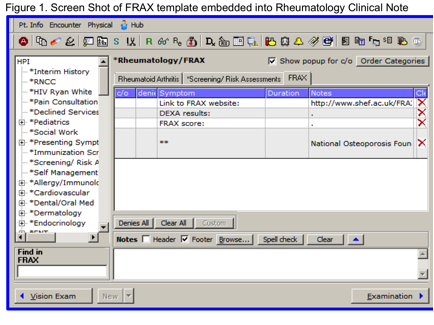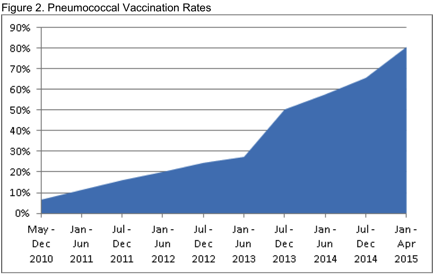Session Information
Session Type: ACR Poster Session C
Session Time: 9:00AM-11:00AM
Background/Purpose:
Patient safety problems are increasing in rheumatology given the growing use of
high-risk immunosuppressive drugs. Electronic health record “dashboards” have
been utilized in research and quality improvement to evaluate provider
performance. However, safety dashboards for rheumatic diseases are lacking,
despite the availability of quality measures and numerous studies indicating
gaps in care. Our objective was to develop an electronic safety dashboard for an
outpatient rheumatology clinic using the Institute for Healthcare Improvement’s
Model for Improvement.
Methods:
We undertook a quality improvement project using data stored
in the electronic health record (EHR) of an urban safety-net hospital to develop
eMeasures for a rheumatology electronic safety dashboard. The eMeasures were evidence-based,
clinically actionable metrics that address high-priority patient safety risks:
(1) bone health monitoring in patients taking oral glucocorticoids, (2)
screening and treatment for latent tuberculosis (TB) prior to initiation of anti-TNF-α
drugs, and (3) pneumococcal vaccination in patients using high-risk
immunosuppressive medications. We built prototype electronic queries to
automatically extract data and adjusted clinical workflows and documentation to
standardize information collection. We used Plan-Do-Study-Act cycles to create
and revise clinical workflows to improve performance on each of these eMeasures.
A data analyst completed training to access the EHR data warehouse and
identified numerator and denominator populations of rheumatology outpatients
using standardized, coded terminologies.
Results:
For the bone health eMeasure, we revised our clinical workflow to include a
bone health template in the clinical note, including embedding a link to a FRAX
calculator. With the introduction and refinement of this template (Figure 1),
performance on bone health measures increased from 0% to 27% in a three-month
period. For the TB screening eMeasure, a drug safety
checklist was instituted into the workflow, and results are currently being
analyzed. For the
pneumococcal vaccination eMeasure, a nurse-led pre-visit planning step and
provider reminder sheet were instituted. This program increased vaccination
rates strikingly over time (Figure 2).
Conclusion:
The development of an electronic dashboard in a safety-net rheumatology clinic coupled
with workflow changes to improve performance on dashboard eMeasures led to
significant improvements in delivering quality measures to rheumatology
patients.
To cite this abstract in AMA style:
Margaretten M, Trupin L, Goglin S, Yazdany J. An Electronic Safety Dashboard for Rheumatology Clinics [abstract]. Arthritis Rheumatol. 2015; 67 (suppl 10). https://acrabstracts.org/abstract/an-electronic-safety-dashboard-for-rheumatology-clinics/. Accessed .« Back to 2015 ACR/ARHP Annual Meeting
ACR Meeting Abstracts - https://acrabstracts.org/abstract/an-electronic-safety-dashboard-for-rheumatology-clinics/


